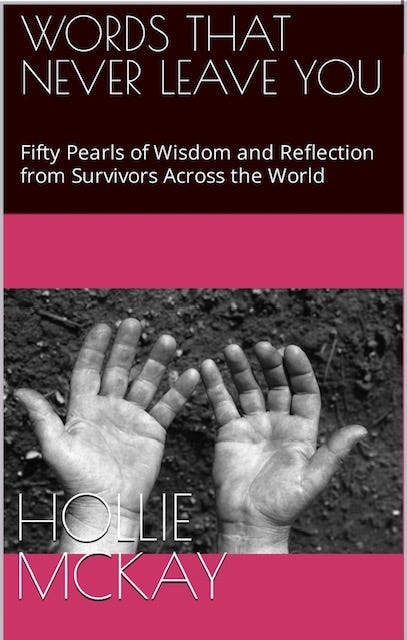Corruption or caretaking? U.S. Presidents notoriously award big donors with cushy ambassadorships, rather than dedicated Foreign Service Officers
“I have the option of taking an ambassadorship,” noted one media-savvy guy I met at a friend’s party in New York City a few months after Donald Trump took office. “If I take one, it needs to be somewhere nice like the Bahamas. A cocktail ambassadorship in a vacation spot.”
Perplexed, I had never heard such a thing. My inherent curiosity forced me home to do some digging. And sure enough, this concept of a “cocktail ambassadorship” was commonplace among Republicans and Democrats. The guy at the party had worked tirelessly on Trump’s 2016 election campaign, and the volunteering wasn’t entirely selfless – there is an expectation in the end and one that stings of crookedness.
When seeking a coveted overseas appointment, should you slog away wracking up college debt before working your way up the ranks of the Foreign Service? Or are you better off just making hefty donations to the winning candidate?
Money speaks just as much as hard work, if not more.
For the longest time, and across party lines, top presidential donors and bundlers garner prized assignments – and the most sought-after destinations from Europe to Caribbean islands – are appropriated for those with the deepest pockets. While this practice has long been accepted as the cost of doing business, it’s the sort of “accepted” corruption that we frown upon in other nations and another example of throw-away government waste the taxpayer has to fund.
Almost every President steps into office and vows to change Washington’s wanton ways but inevitably realizes that the beast cannot be altered. For example, President Obama vehemently pledged change but outstripped his predecessors. Fifty-seven percent of his ambassador selections were not career Foreign Service Officers (FSO) but political appointees. At least twenty-three percent were hand-chosen from a pool of bundlers, defined as those who raise significant monies for a candidate by “bundling” together an array of smaller contributions, typically to the value of more than $50,000. Most were granted cushy ambassador assignments from Austria, Belgium and Belize to South Africa, Switzerland, France and Morocco.
Over the past five decades, political appointees have averaged around thirty percent. George W. Bush appointed thirty-six percent from the political pool, while Jimmy Carter was at the low end – approximately twenty-four percent.

President Biden also promised no ambassador would be assigned based on campaign contributions. However, he was quick to nominate twenty-five former bundlers, those who raised more than $100,000, and their spouses to ambassadorships, representing twenty-nine percent of his overall nominees, according to data from the Partnership for Public Service and OpenSecrets.
While the practice benefits the individual candidate, critics lament it often disservice U.S. foreign policy. For example, Obama nominated prominent donor, businessman and attorney George Tsunis to be ambassador to Norway. However, at confirmation hearings, he admitted to knowing little about how Oslo functioned or even the names of the political parties, and the confirmation failed. Under Biden, Tsunis serves as the reigning Ambassador to Greece.
So, why do the money folks seek these Amb titles?
It represents power, legacy, and an American equivalent to being a Lord or Lady. But if these cocktail ambassadorships are really not that important in the sense that they don’t require the expertise of a well-heeled FSO, why not save U.S. taxpayers some spare change and eliminate the positions altogether? Why are we paying for the lifestyles of the already wealthy yet apparently unqualified? Often, countries circumvent the diplomatic head and deal directly with a Washington counterpart anyway.
And inescapably, these nominations demoralize the Foreign Service even more. What is the point of decades of dedication only to see outside favorites brought into the top job?
This accepted “campaign corruption” extends beyond the diplomatic dance, as Commanders-in-Chief often reward high-dollar donors with sweet gigs.
For one, President Trump appointed six donors who forked out hundreds of thousands to his 2016 bid to various top spots, despite declaring his independence from the money machine. The likes of Betsy DeVos, whose family contributed $1.8 million, became Education Secretary. Further, Todd Ricketts, whose parents contributed $1.3. million scored Deputy Commerce Secretary.
It doesn’t end there.
In exchange for campaign donations, elected officials of all stripes pass laws in favor of their small selections of major donors – think Big Pharma and the military-industrial complex – rather than what is best for the average American.
I have often criticized foreign aid and the systematic corruption in other countries, which wastes the money you and I work hard to earn, but its alarming nature here at home is a point of contention we too often ignore.
PLEASE CONSIDER A PAID SUBSCRIPTION TO THIS SUBSTACK TO HELP KEEP INDEPENDENT, AGENDA-FREE WRITING AND JOURNALISM ALIVE. THANK YOU SO MUCH FOR YOUR SUPPORT.
For speaking queries please contact meta@metaspeakers.org
Follow me on Instagram and Twitter for more updates
HOLLIE’S BOOKS (please leave a review)
** Short read of meaningful lessons gleaned from the ordinary forced to become extraordinary
Order your copy of “Afghanistan: The End of the US Footprint and the Rise of the Taliban Rule” due out this fall.
For those interested in learning more about the aftermath of war, please pick up a copy of my book “Only Cry for the Living: Memos from Inside the ISIS Battlefield.”
If you want to support small businesses:





